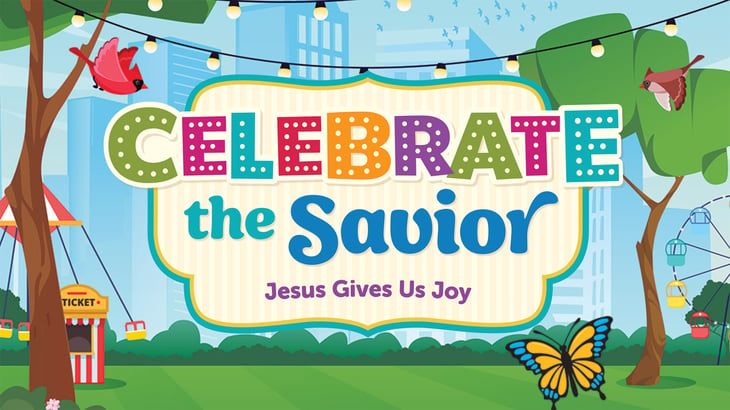Recent Posts by Concordia Publishing House
How to Equip Youth with Resilient Minds
Mental health awareness has increased significantly over the last decade, especially for our youth. When it comes to addressing these important topics and conversations, there are a lot of resources to choose from. How do you find a mental health curriculum that builds up healthy habits while keeping Christ at the center? Our new Resilient Minds: Christ-Centered Mental Health Curriculum for 5th–8th grade makes answering this question a no-brainer!
Overview of Early Childhood Enduring Faith® Religion Curriculum
Families and educators share the role of encouraging children toward faith that endures a lifetime. That is why Concordia Publishing House created the Enduring Faith Religion Curriculum for Preschool–8th grade. Now, we are excited to share with you that Early Childhood has been added to the Enduring Faith family! Continue reading to learn more about this curriculum and how it nurtures the little ones in your life on their faith journey.
Free Teaching Tools for Holy Week and Easter
The celebration of Easter is the celebration of God’s grace and what He has done for us through the gift of His Son, Jesus Christ. Make sure the children around you know why with these free teaching tools for Holy Week and Easter.
VBS 2024 Overview: Celebrate the Savior
We are thrilled to roll out our VBS program for 2024: Celebrate the Savior! Our theme, Jesus Gives Us Joy, will teach children that Jesus gives us so many things worth celebrating—most importantly, His love and forgiveness. Just as King David celebrated God’s excellence in Psalm 95:1 (“let us make a joyful noise to the rock of our salvation”), children will celebrate their Savior at VBS. Keep reading to learn more about the curriculum at Celebrate the Savior.
Top Five Advent and Christmas Teaching Tools
Christmas is a favorite time of the year for many. Winter break approaches after a few months of classes, parents are thinking about time off with their kids, and churches are planning their Advent and Christmas celebrations—a joyous and busy time for all. But amid all this, you may be wondering how you can emphasize the importance of Christmas and the greatest gift we have, Jesus. Here are some of our favorite kits and tools for preparing the way for baby Jesus.
Teaching about the Church Year in Sunday School
As adults in the faith, most of us have a solid understanding of how worship looks throughout the year. We grow accustomed—maybe even desensitized—to the changes around us. Sometimes the altar has a green parament but other times purple, for example. While children may be more observant of these patterns than we expect, it’s important that we intentionally teach them about the seasons of the Church Year in Sunday School.
Teaching the Faith to Young People
Youth are not just the church’s future—they’re also the church’s now. As a leader, volunteer, or church worker, your job is to remind youth that they’re loved by Jesus and their congregation. The following is an excerpt from Connected for Life: Essential Guide to Youth Ministry, which provides guidance, encouragement, and advice on leading a youth ministry that supports young adults in their faith for life.
How to Talk to Kids about God’s Design for Men and Women
Our children face numerous challenges today, such as topics of conversation happening before they are ready to hear them, pressures regarding their identity, and more. When it comes to conversations about sexual identity and faith, the best we can do is continue to point our children back to God and His Word. In this post, we are going to cover specifics about the new Learning About Sex Education Curriculum and how it equips parents or guardians, teachers, and children to be in the world but not of it.
Models for Teaching Confirmation
The truth of God’s Word never changes, but with each new group of catechumens come different learning needs. How do you tailor your teaching to meet students where they are? This post will explore teaching models for confirmation and help you decide which works best for your setting.
Prayers to Prepare for VBS
Vacation Bible School is a blast! The week is filled with fun activities, catchy songs, delicious snacks, and time with friends. For some, VBS can be the turning point in their faith. The volunteer who has been doing this for years walks away with a deeper knowledge of how to share the Good News of Jesus with others; the new volunteer experiences what it’s like to encourage a young one in his or her faith; the older VBS participant looking at his or her last VBS before becoming a volunteer has memories of how impactful this event can be. All these things and more are jam-packed into a five-day VBS. With all those possibilities, the best thing we can do is pray for everyone who gets to be a part of VBS!











.jpg?width=730&height=411&name=shutterstock_1096708937%20(2).jpg)








